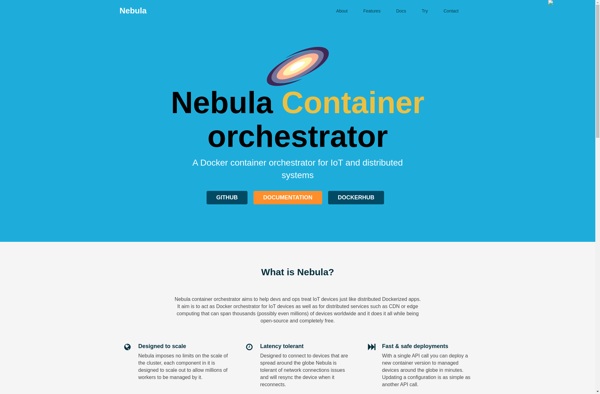Panamax
Panamax is an open-source container management platform that allows users to easily deploy, monitor, manage, and scale Docker containers. It provides a simple graphical user interface to handle Docker environments.
Panamax: Open-Source Container Management Platform
A simple and intuitive platform for deploying, monitoring, managing, and scaling Docker containers.
What is Panamax?
Panamax is an open-source container management platform built on Docker and CoreOS. It allows users to easily deploy, monitor, manage, and scale Docker containers through a simple graphical user interface.
Some key features of Panamax include:
- Graphical container management - Easily create, run,and link Docker containers without touching the command line.
- Application templates - Quickly deploy pre-configured containerized apps like Redis, MongoDB, and WordPress.
- Multi-host management - Manage multiple CoreOS hosts as a fleet to schedule containers across your infrastructure.
- Monitoring and statistics - View real-time and historical usage statistics for your containers.
- Simple sharing - Share templates and stacks with others to reproduce container environments.
- Cross-platform support - Panamax has native apps for Linux, Windows and OS X.
Panamax aims to simplify container management and make Docker more accessible for developers and IT teams. Its intuitive UI allows those without Docker expertise to leverage containers and manage complete containerized application stacks with ease.
Panamax Features
Features
- Graphical user interface to manage Docker containers and hosts
- Ability to deploy, monitor, manage and scale Docker containers
- Template library for deploying containers
- Built-in monitoring and logging
- Multi-host management
- RESTful API
Pricing
- Open Source
Pros
Easy to use GUI
Simplifies Docker management
Open source and free
Active development community
Cons
Less flexible than native Docker CLI
Limited integration with Docker Swarm
No commercial support offered
Official Links
Reviews & Ratings
Login to ReviewThe Best Panamax Alternatives
Top Development and Container Management and other similar apps like Panamax
Here are some alternatives to Panamax:
Suggest an alternative ❐Kubernetes
Kubernetes is an open-source system for automating deployment, scaling, and management of containerized applications. It groups containers that make up an application into logical units for easy management and discovery. Kubernetes provides a framework to run distributed systems resiliently across clusters of machines, hide the complexity of managing many different...
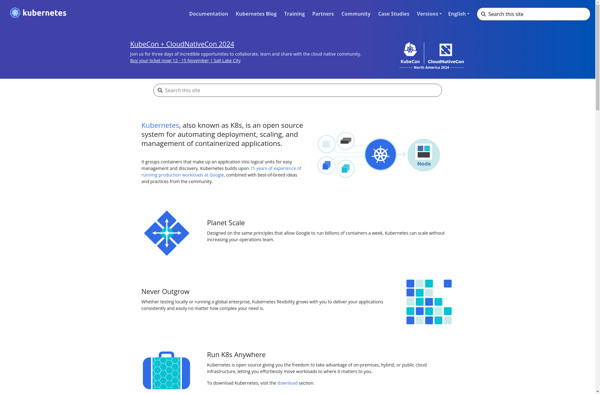
Portainer
Portainer is an open-source platform for managing Docker and Kubernetes container infrastructure. It provides a graphical user interface that allows you to easily manage containerized applications and microservices without needing deep technical knowledge.Some of the key features Portainer offers include:Visualizer - Get a birds-eye view of your Docker and Kubernetes...
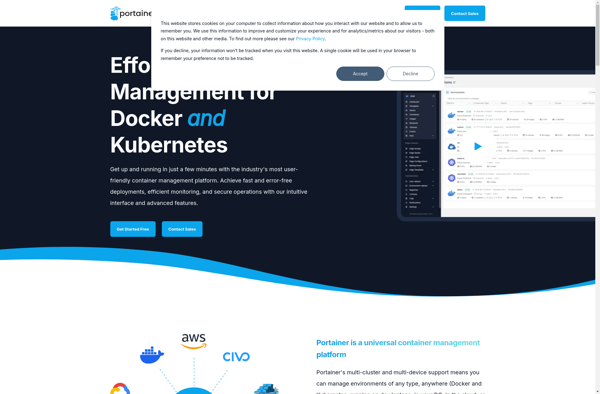
Rancher
Rancher is an open-source container management platform designed to help developers and DevOps teams deploy, manage, and secure containerized applications across multiple infrastructure providers. Key features of Rancher include:Intuitive GUI for managing Kubernetes clusters across public and private clouds, as well as bare metal serversSupport for leading Kubernetes distributions including...
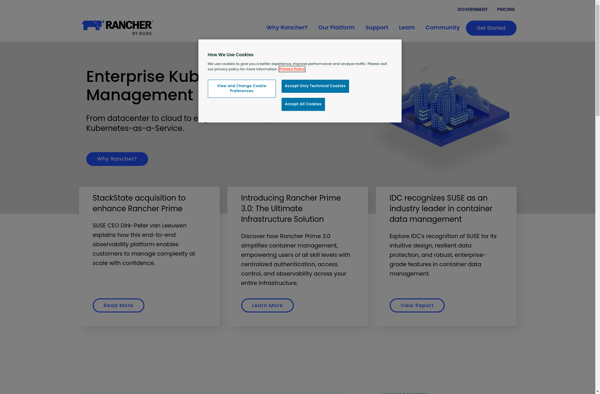
Docker
Docker is an open platform for developing, shipping, and running applications inside software containers. It provides an additional layer of abstraction and automation of operating-system-level virtualization on Linux, Mac OS and Windows.Docker packages software into standardized units called containers that have everything the software needs to run including libraries, system...
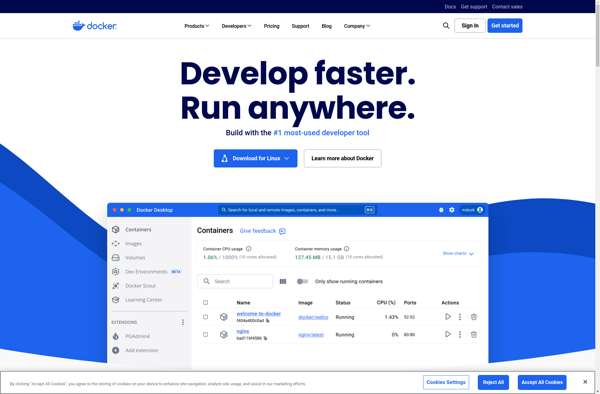
Flatpak
Flatpak is a utility for software deployment and package management on Linux. It provides a framework for building, distributing, installing and running applications in isolated environments called sandboxes.Some key features of Flatpak include:Sandboxing - Each Flatpak app runs in its own sandbox, isolated from the rest of the system. This...
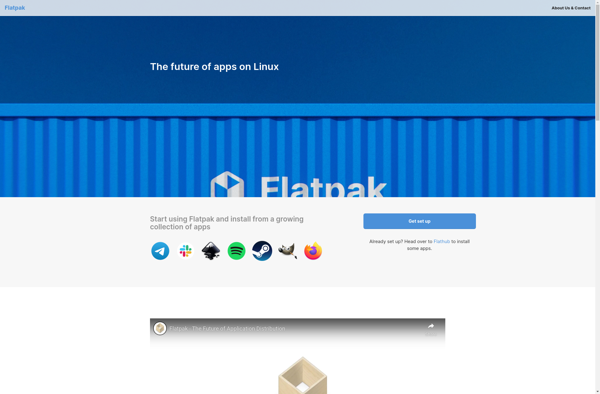
Virt-manager
virt-manager is an open-source graphical application for managing virtual machines using the libvirt toolkit and related technologies. It provides a simple way to view, control, and manage guest virtual machines running on the KVM and Xen hypervisors as well as other libvirt-supported technologies such as LXC, QEMU, and VirtualBox.Some key...
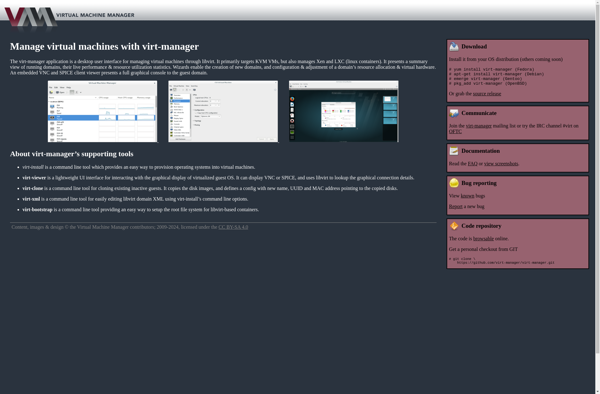
Microsoft Hyper-V Server
Microsoft Hyper-V Server is a free, standalone product from Microsoft that provides a hypervisor-based virtualization platform for running virtual machines on x64 Windows servers. It has a small footprint and requires limited system resources while providing a simple and reliable virtualization solution.As a hypervisor, Hyper-V creates and runs virtual machines...
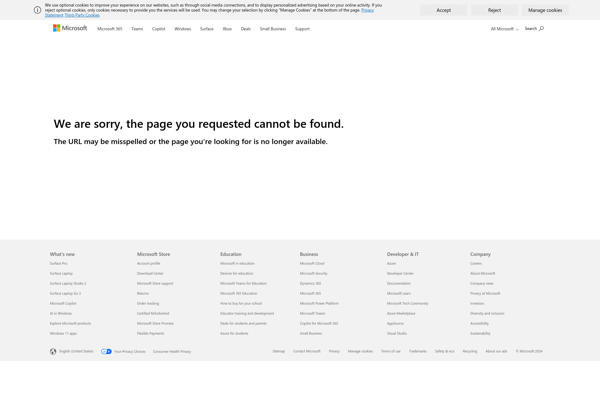
Apache Mesos
Apache Mesos is an open source cluster manager that provides efficient resource isolation and sharing across distributed applications or frameworks. It sits between the application layer and the operating system on a distributed system, and makes it easier to deploy and manage applications in large-scale clustered environments.Some key features of...
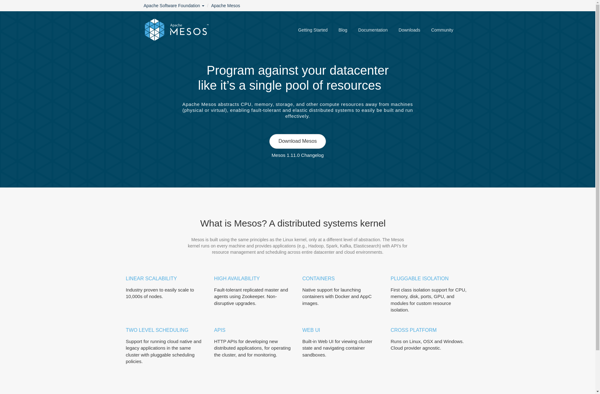
AppImageKit
AppImageKit is an open source tool that allows developers to package Linux applications as AppImages - self-contained software bundles that run on most major Linux distributions without needing installation or admin rights. AppImages are portable across distributions and versions, easy to build and deploy, and sandboxed from the rest of...
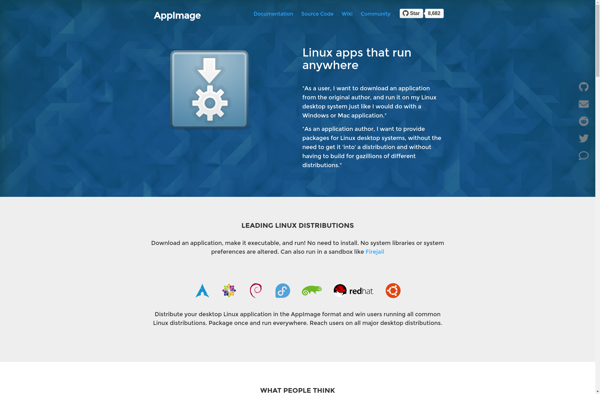
Mesosphere DCOS
Mesosphere DCOS (Datacenter Operating System) is an open source distributed operating system based on Apache Mesos technology for efficiently managing clusters of computers. It provides resource sharing and scalability for distributed applications or services.Key features of DCOS include:Builds on top of Apache Mesos to take advantage of resource sharing and...
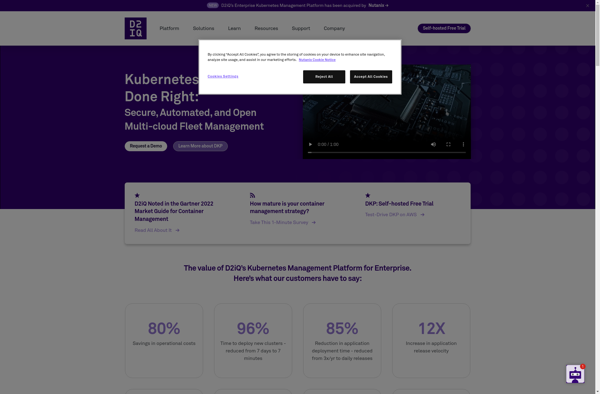
Nebula Container Orchestrator
Nebula Container Orchestrator (Nebula) is an open-source container orchestration and management platform. It allows users to easily deploy, manage and scale containerized applications across clusters of hosts.Some key features of Nebula include:Deployment automation - Nebula can deploy application stacks with a single command across a clusterAuto-scaling - It can automatically...
